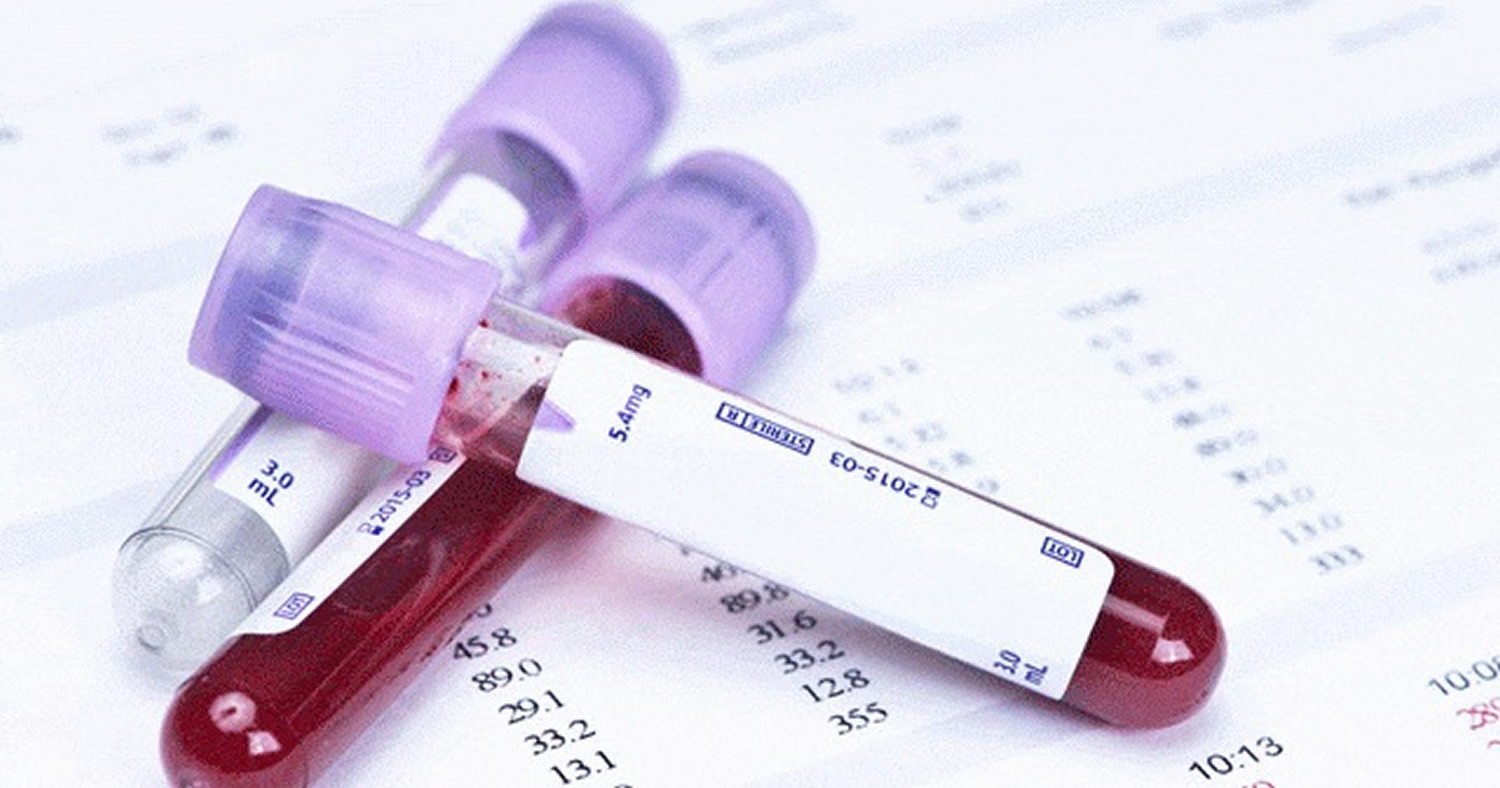Definisi
Anemia megaloblastik adalah kondisi dimana tubuh kekurangan sel darah merah karena sumsum tulang menghasilkan sel darah merah yang belum matang dengan ukuran besar dan tidak normal.
Tubuh membutuhkan sejumlah sel darah merah yang sehat untuk membawa oksigen dari paru-paru ke jaringan tubuh. Seperti semua sel darah, sel darah merah dimulai sebagai sel punca di sumsum tulang.
Vitamin B12 dan vitamin B9 bertugas untuk membantu pembentukan sel darah merah. Tanpa cukup vitamin B12 atau vitamin B9, tubuh Anda akan menghasilkan sel abnormal yang disebut megaloblast. Sel-sel abnormal ini memiliki ukuran yang besar sehingga seringkali tidak dapat keluar dari sumsum tulang untuk masuk ke aliran darah.
Meskipun sel darah merah dapat masuk ke aliran darah, sel-sel ini akan lebih cepat mati dibandingkan sel darah merah yang sehat. Faktor-faktor inilah yang dapat mengurangi jumlah sel darah merah dan menyebabkan anemia.
Penyebab
Kekurangan vitamin B12 (kobalamin) dan B9 (asam folat) dapat menyebabkan anemia megaloblastik. Kedua vitamin ini dibutuhkan dalam memproduksi sel darah merah yang sehat untuk membawa oksigen ke seluruh tubuh. Jika tubuh kekurangan vitamin ini, maka struktur dan bentuk sel darah merah akan terganggu.
Kekurangan Vitamin B12
Vitamin B12 atau kobalamin adalah nutrien yang dapat Anda temukan pada makanan ataupun minuman, seperti daging, ikan, telur, dan produk susu. Kekurangan atau defisiensi vitamin B12 dapat terjadi akibat pola makan yang tidak sehat sehingga berisiko mengalami anemia megaloblastik. Anemia megaloblastik yang disebabkan oleh defisiensi vitamin B12 disebut juga dengan anemia defisiensi vitamin B12.
Defisiensi vitamin B12 juga dapat terjadi akibat kondisi medis yang memengaruhi kemampuan tubuh dalam menyerap vitamin ini. Beberapa kondisi tersebut antara lain:
- Anemia pernisiosa: Penyakit autoimun yang menyebabkan tubuh tidak dapat menyerap vitamin B12
-
Gastrektomi: Prosedur operasi pengangkatan lambung sehingga dapat memengaruhi penyerapan vitamin B12
-
Sindrom Zollinger-Ellison: Kondisi langka yang membuat tubuh tidak dapat menyerap vitamin B12
-
Blind loop syndrome: Sindrom ini terjadi ketika makanan yang telah dicerna berhenti bergerak melalui usus, menyebabkan pertumbuhan bakteri berlebihan sehingga dapat mengganggu penyerapan vitamin B12
- Infeksi cacing pita: Anda bisa terinfeksi cacing pita jika mengonsumsi makanan mentah. Cacing pita dapat mengganggu penyerapan vitamin B12
-
Insufisiensi pankreas: Kondisi ini memengaruhi kemampuan pankreas dalam memproduksi enzim pencernaan untuk memecah makanan, yang berarti Anda mungkin tidak mendapatkan cukup semua nutrisi yang dibutuhkan, termasuk vitamin B12 atau vitamin B9
- Obat-obatan. Obat penghambat pompa proton (proton pump inhibitors) untuk mengobati asam lambung dan metformin (obat anti-diabetes) dapat mengurangi jumlah vitamin B12 di dalam tubuh
Kekurangan Vitamin B9
Vitamin B9 atau asam folat adalah nutrien lain yang diperlukan untuk menghasilkan sel darah merah yang sehat. Asam folat dapat ditemukan pada beberapa makanan, seperti daging atau hati sapi, buah-buahan, dan sayuran hijau (bayam, kale, brokoli).
Kekurangan atau defisiensi vitamin B9 dapat terjadi akibat pola makan rendah folat sehingga Anda berisiko mengalami anemia megaloblastik. Terdapat kondisi lain yang menyebabkan defisiensi vitamin B9, yaitu:
-
Penyakit sistem pencernaan: Sistem pencernaan tidak dapat menyerap asam folat dengan baik jika Anda memiliki penyakit seperti penyakit crohn atau celiac
- Anemia hemolitik: Kelainan darah yang terjadi ketika penghancuran sel darah merah terjadi lebih cepat dibandingkan pembentukannya
-
Penyalahgunaan alkohol: Alkohol dapat mengganggu kemampuan tubuh dalam menyerap asam folat
-
Mengolah buah dan sayur yang tidak tepat: Kandungan vitamin di dalam buah dan sayur (termasuk vitamin B9) dapat rusak jika terpapar panas terlalu lama
- Obat-obatan tertentu: Beberapa obat antikejang dan obat untuk peradangan usus dapat mengganggu penyerapan folat
-
Cuci darah (dialisis): Orang yang menjalani cuci darah membutuhkan lebih banyak folat
- Kehamilan: Ibu hamil cukup sering mengalami defisiensi asam folat. Hal ini disebabkan oleh tingginya kebutuhan asam folat untuk proses perkembangan janin sehingga ibu hamil disarankan untuk mengonsumsi suplemen tambahan
Faktor Risiko
Beberapa faktor dapat meningkatkan risiko terjadinya anemia megaloblastik, termasuk kondisi yang memengaruhi penyerapan vitamin B12 atau B9. Faktor risiko yang mungkin termasuk:
- Pola diet: Orang yang menjalani diet Mediterania memiliki risiko lebih tinggi mengalami defisiensi vitamin B12. Jika Anda sedang menjalankan program diet disarankan untuk mengonsumsi suplemen tambahan.
- Obat-obatan: Obat-obatan tertentu, seperti penghambat pompa proton, dapat membatasi penyerapan B12.
- Kondisi medis tertentu: Kondisi kesehatan seperti penyakit celiac, kolitis ulserativa, dan penyakit crohn dapat mengganggu penyerapan vitamin B12.
Baca Juga: Penyakit Penyakit Crohn - Definisi, Penyebab, Gejala, dan Tata Laksana | AI Care (ai-care.id)
Gejala
Gejala umum dari anemia megaloblastik adalah kelelahan. Gejala yang dirasakan pada setiap penderita dapat berbeda-beda, antara lain:
- Sesak napas
- Kelemahan otot
- Kulit tampak lebih pucat
- Pusing
- Memiliki masalah pada lidah, seperti glositis, pembengkakan lidah, atau perubahan pada tekstur lidah menjadi licin dan halus
- Tidak nafsu makan atau penurunan berat badan
- Jantung berdebar (takikardia)
- Kesemutan atau mati rasa pada tangan dan kaki
Diagnosis
Dokter dapat menegakkan diagnosis anemia megaloblastik melalui wawancara medis, pemeriksaan fisik, dan pemeriksaan penunjang. Saat melakukan wawancara medis, dokter akan menanyakan gejala yang Anda rasakan dan sejak kapan gejala mulai muncul.
Selanjutnya, dokter akan melakukan pemeriksaan fisik yang mengacu pada diagnosis anemia megaloblastik. Untuk memastikan diagnosis, dokter memerlukan pemeriksaan lanjutan berupa tes darah. Tes darah yang dilakukan antara lain:
- Hitung darah lengkap: Dengan pemeriksaan ini dokter dapat menilai jumlah dan fungsi dari sel darah merah.
- Morfologi darah tepi: Tes ini dilakukan untuk menganalisis sel-sel darah, seperti warna, bentuk, ukuran, dan jumlahnya. Pemeriksaan ini dlilakukan di bawah mikroskop.
- Pemeriksaan retikulosit: Pemeriksaan ini dilakukan untuk mengetahui jumlah sel darah merah yang belum matang (immatur) di sumsum tulang dan untuk mengetahui apakah sumsum tulang Anda menghasilkan cukup sel darah merah yang sehat.
Tata Laksana
Dokter akan melakukan penatalaksanaan anemia megaloblastik tergantung dari penyebab yang mendasarinya. Selain itu, pengobatan juga dapat dilakukan tergantung dengan usia pasien, kondisi kesehatan secara keseluruhan, respon terhadap pengobatan, dan tingkat keparahan penyakit itu sendiri.
Kekurangan Vitamin B12
Pada kasus anemia megaloblastik yang disebabkan karena kekurangan vitamin B12, dokter mungkin akan memberikan suntikan vitamin B12 setiap bulan atau meresepkan obat suplemen.
Anda juga dapat memenuhi kebutuhan vitamin B12 melalui makanan yang Anda konsumsi, seperti:
- Unggas
- Daging merah
- Ikan
- Kerang
- Telur
- Produk susu
- Makanan fortifikasi (yang telah diperkaya vitamin B12)
Kekurangan Vitamin B9
Anemia megaloblastik yang disebabkan karena tubuh kekurangan vitamin B9 (folat) dapat diobati dengan pemberian suplemen obat minum atau melalui suntikan. Mengonsumsi makanan yang tinggi folat juga dapat membantu mengatasi kekurangan vitamin B9, seperti:
- Sayuran berdaun hijau
- Kacang-kacangan
- Biji-bijian
- Daging
- Telur dan produk susu
- Makanan fortifikasi (yang telah diperkaya vitamin B9)
Baca Juga: Penyakit Anemia pada Kehamilan - Definisi, Penyebab, Gejala, dan Tata Laksana | AI Care (ai-care.id)
Komplikasi
Anemia megaloblastik dapat menimbulkan beberapa komplikasi, antara lain adalah:
- Kanker lambung
- Cacat tabung saraf pada bayi (jika kekurangan folat saat hamil)
- Hilang ingatan
- Kelelahan berkepanjangan
Pencegahan
Agar terhindar dari risiko terjadinya anemia megaloblastik Anda dapat menerapkan beberapa hal berikut:
- Konsumsi makanan gizi seimbang dengan mencukupi kebutuhan vitamin B12 ataupun B9
- Hindari konsumsi alkohol
- Jika Anda sedang menjalani diet tertentu, Anda dapat mengonsumsi suplemen tambahan dengan resep dokter
- Jika Anda memiliki gangguan penyerapan vitamin B12 ataupun B9, berkonsultasilah ke dokter untuk mengelola kondisi tersebut
Kapan Harus ke Dokter?
Segeralah ke dokter bila Anda mengalami gejala seperti yang sudah dijelaskan diatas dan memiliki faktor risiko terhadap anemia megaloblastik.
Mau tahu informasi seputar penyakit lainnya? Cek di sini, ya!
- dr Nadia Opmalina
A. Hariz, PT Bhattacharya (2022). Retrieved 24 March 2023, from https://www.ncbi.nlm.nih.gov/books/NBK537254/
Cleveland Clinic - Megaloblastic Anemia (2022). Retrieved 24 March 2023, from https://my.clevelandclinic.org/health/diseases/23160-megaloblastic-anemia
Medscape - Megaloblastic Anemia (2021). Retrieved 24 March 2023, from https://emedicine.medscape.com/article/204066-overview
Healthline. Megaloblastic Anemia (2021). Available from: https://www.healthline.com/health/megaloblastic-anemia











